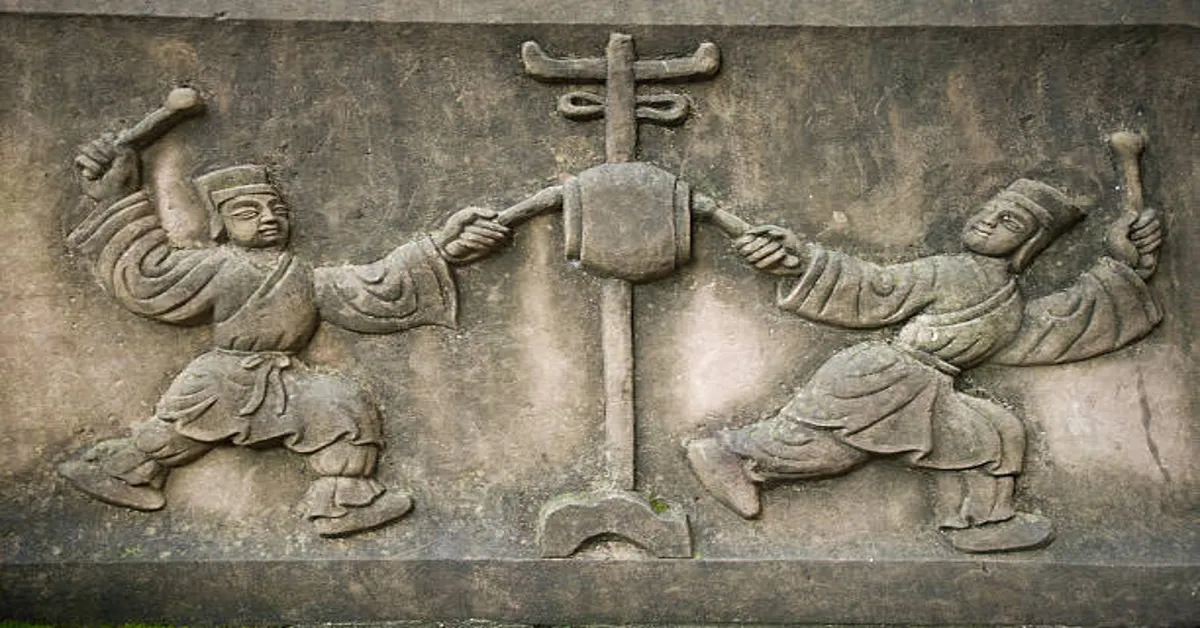In the digital age, new words, phrases, and cultural expressions frequently emerge, often influenced by linguistic evolution, internet trends, subcultures, or cross-language integration. One such intriguing term is “Xuebaotou”. Though not widely known in English-speaking regions, the name evokes a strong sense of identity, mystery, and potential symbolism. This article takes an in-depth look at the term, exploring its linguistic origins, hypothetical meaning, cultural relevance, symbolic potential, and how it may relate to broader themes in society.
Let’s explore what Xuebaotou could signify across various dimensions—language, education, identity, branding, and societal symbolism.
Linguistic Breakdown and Interpretation
To begin understanding “Xuebaotou”, we must analyze its possible linguistic components. The term appears to be Chinese in origin, composed of three syllables: Xue, Bao, and Tou.
1. Xue (学 / 雪):
Depending on the Chinese character used, “Xue” can have multiple meanings:
- 学 (Xué) – To learn or study; often associated with education, scholarship, and academics.
- 雪 (Xuě) – Snow; symbolizing purity, coldness, or seasonal themes.
2. Bao (宝):
The word “Bao” often means treasure or something valuable. In Chinese culture, it can also indicate something cherished or adored, like in names such as Baobao (宝宝), which means “baby” or “precious one.”
3. Tou (头):
This commonly translates to “head”, “top”, or can imply leadership, initiation, or forefront position. In a figurative sense, “tou” may symbolize someone who leads, a chief figure, or a symbolic ‘head’ of something.
Combining the Meaning:
From this analysis, Xuebaotou could hypothetically mean:
- “The head of scholarly treasures”
- “The top academic gem”
- “Snowy treasure leader”
- “Precious student leader”
While the literal translations are speculative, they all seem to center around themes of value, knowledge, purity, and leadership. The term could be used symbolically or metaphorically in literature, branding, or cultural storytelling.
Cultural Contexts and Symbolism
The fusion of “Xue,” “Bao,” and “Tou” into a single term may suggest a deeper symbolic identity or cultural role. In many East Asian cultures, names carry weight and philosophical depth, especially when linked to virtues, ideals, or attributes. Here’s how Xuebaotou could fit into cultural symbolism:
1. Scholar as a Symbol of Virtue and Achievement
The term “Xueba” is an internet slang in Chinese often used to describe top-performing students or academic overachievers. It combines “Xue” (study) and “Ba” (tyrant), playfully implying someone who dominates the world of studies.
In this light, Xuebaotou might be interpreted as:
- The leader among academic elites.
- A hero of knowledge and learning.
- A symbolic representation of hard-earned excellence.
2. Treasure (Bao) as Inner Value
In traditional Chinese thought, what is “bao” or “treasured” is not necessarily material. It can be virtue, wisdom, harmony, or even inner peace. Combining this with academic excellence can frame Xuebaotou as:
- A person who treasures knowledge.
- Someone with wisdom as their most valued asset.
- A mentor-like figure whose head (tou) is full of treasured learning.
3. The Head (Tou) as Authority
The inclusion of “tou” gives the impression of authority, leadership, or being at the forefront. In cultural storytelling, this could turn Xuebaotou into:
- A symbolic leader in education or values.
- The embodiment of mental superiority.
- The face of a generation of thinkers.
Thus, Xuebaotou might not be a random term, but a symbolic title, a character archetype, or a concept used to represent intellectual leadership and moral treasure.
Character Identity: The Rise of a Symbolic Persona
In the realm of modern storytelling—whether in anime, manhua, comics, or games—names like Xuebaotou could represent a character or archetype. Let’s imagine what kind of character Xuebaotou might be:
1. The Intellectual Hero
A calm, calculated individual who leads others through strategic thinking, ethics, and wisdom. They might not be the strongest physically, but their mind is their greatest weapon. They are respected by peers, feared by rivals, and valued by society.
2. The Student Leader
Someone who rises through educational institutions by merit, helps others study, unites classmates, and brings innovation in student movements. The term may capture the narrative of a self-made hero, earning respect through grit and brilliance.
3. The Guardian of Wisdom
As a mythical or fantasy figure, Xuebaotou might be the guardian of sacred scrolls, libraries, or ancient wisdom. They may travel the world seeking knowledge, helping societies rebuild after losing their roots or histories.
Application in Branding and Business
Besides symbolic interpretations, Xuebaotou could also be a brand name, especially in China or regions with Mandarin-speaking populations. It has the phonetic structure that’s attractive, easy to remember, and culturally rich.
Potential Brand Uses:
- Educational Platform or App – Tutoring services, online learning, test preparation, or student mentoring tools.
- Publishing House – Books and materials focused on youth education, literature, or scholarly writing.
- Stationery Brand – Premium products aimed at students, such as notebooks, pens, planners, and motivational tools.
- Children’s Clothing Line – Designed to instill values of learning and exploration through fashion.
- Toy or Learning Kit Company – Promoting STEM education with a mascot or character named Xuebaotou.
In all these cases, the name’s implied meaning of “treasured academic leadership” can resonate well with parents, educators, and aspirational youth.
Xuebaotou in Educational Philosophy
1. Promoting Lifelong Learning
If taken as a character or a symbolic leader, Xuebaotou can represent the philosophy of lifelong learning, where knowledge is not just a phase of youth, but a lifelong pursuit.
2. Advocating Growth Mindset
Rather than celebrating only innate intelligence, Xuebaotou could embody a growth mindset, where continuous effort and perseverance define success.
3. Supporting Equity in Education
As a hypothetical mascot or symbol, Xuebaotou can promote inclusive education, representing students from all backgrounds who strive for knowledge regardless of their starting point.
4. Ethical and Moral Learning
In a society where grades can sometimes overshadow values, Xuebaotou can represent a return to ethical learning—where how you learn matters as much as what you learn.
Psychological and Social Implications
1. Identity Formation
Names like Xuebaotou can influence how young individuals perceive their academic journey. If positioned as an aspirational figure, it can inspire confidence, discipline, and resilience.
2. Peer Dynamics
In competitive educational systems, the idea of a “Xuebaotou” might create both motivation and pressure. Educators and parents should encourage balance and emotional support alongside achievement.
3. Generational Aspirations
Each generation has its heroes. Xuebaotou could become a symbol of Gen Z or Gen Alpha, representing their values: knowledge, independence, creativity, and a global outlook.
Storytelling and Literary Potential
Writers and creators can develop entire fictional universes around such terms. In fact, a name like Xuebaotou lends itself well to:
- Children’s Books – A magical kid who solves problems through intelligence and kindness.
- Anime or Web Series – A school setting with layered student hierarchies, with Xuebaotou being the thoughtful genius.
- Fantasy Novels – A sage who leads young heroes through ancient trials of knowledge and truth.
- Comic Series – A school where supernatural exams test integrity, with Xuebaotou as the underdog turned leader.
These narratives can be deeply engaging while promoting moral values and intellectual curiosity.
Cultural Integration and Global Appeal
For a name like it to succeed globally, it should be accompanied by:
- Phonetic clarity – Easy to pronounce and catchy in other languages.
- Cultural packaging – Ensuring audiences understand the meaning and values it represents.
- Emotional connection – Through storytelling, character development, or branding that resonates across cultures.
Whether through books, apps, shows, or merchandise, the essence of it can be universal: cherishing learning, leading by wisdom, and growing with integrity.
Conclusion
The term Xuebaotou, though not commonly found in English language literature or public consciousness, holds rich potential when explored through the lenses of linguistics, culture, symbolism, character identity, education, and branding. Whether it refers to a wise scholar, a beloved academic hero, or a fictional mascot guiding children, it can become a powerful figure in storytelling, educational advocacy, or personal growth narratives.
This article aimed to explore every possible facet of what “Xuebaotou” could mean or evolve into. Far beyond a name, it represents an ideal—the treasure of knowledge, the virtue of wisdom, and the responsibility of leadership.
ALSO READ: Pentikioyr: A Deep Exploration into a Conceptual Philosophy of Life and Harmony
Frequently Asked Questions (FAQs)
1. What does the word “Xuebaotou” mean?
“Xuebaotou” appears to be a compound word potentially meaning “head of scholarly treasures” or “leader of academic excellence,” derived from Chinese linguistic roots.
2. Is Xuebaotou a real person or fictional character?
As of now, Xuebaotou does not refer to a specific real or fictional individual but could be used symbolically as a character name or educational mascot.
3. Can Xuebaotou be used as a brand name?
Yes, Xuebaotou has strong phonetic and cultural appeal, making it suitable for educational apps, tutoring services, children’s products, or academic content platforms.
4. How is Xuebaotou connected to Chinese culture?
The components of the name draw from Chinese values: learning (Xue), treasure (Bao), and leadership (Tou), reflecting virtues central to Chinese educational philosophy.
5. Could Xuebaotou be developed into a character or story?
Absolutely. Xuebaotou could be the protagonist of children’s stories, animated series, or educational campaigns, symbolizing the pursuit of knowledge, ethical leadership, and inner value.









